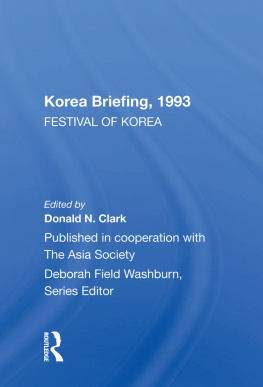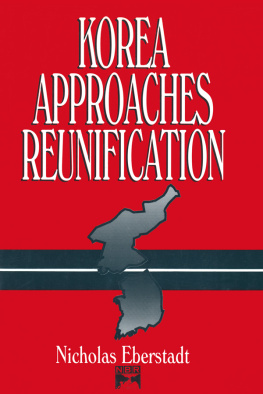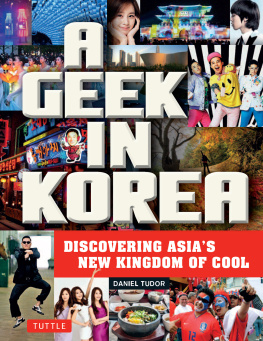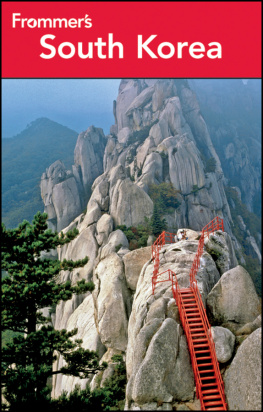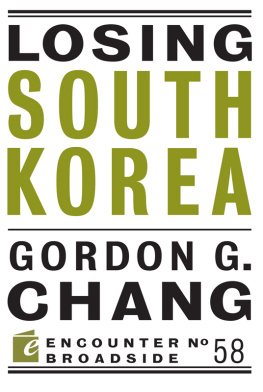Routledge Revivals
KOREA TODAY
KOREA TODAY
BY
George M. McCune
WITH THE COLLABORATION O F
Arthur L. Grey
ISSUED UNDER THE AUSPICES OF THE INTERNATIONAL SECRETARIAT INSTITUTE OF PACIFIC RELATIONS
First published in 1950 by Harvard University Press
This edition first published in 2018 by Routledge
2 Park Square, Milton Park, Abingdon, Oxon, OX14 4RN
and by Routledge
52 Vanderbilt Avenue, New York, NY 10017, USA
Routledge is an imprint of the Taylor & Francis Group, an informa business
1950 by International Secretariat, Institute of Pacific Relations
All rights reserved. No part of this book may be reprinted or reproduced or utilised in any form or by any electronic, mechanical, or other means, now known or hereafter invented, including photocopying and recording, or in any information storage or retrieval system, without permission in writing from the publishers.
Publishers Note
The publisher has gone to great lengths to ensure the quality of this reprint but points out that some imperfections in the original copies may be apparent.
Disclaimer
The publisher has made every effort to trace copyright holders and welcomes correspondence from those they have been unable to contact.
A Library of Congress record exists under ISBN:
ISBN 13: 978-0-367-17842-0 (hbk)
ISBN 13: 978-0-429-05800-4 (ebk)
KOREA TODAY
THE INSTITUTE OF PACIFIC RELATIONS
The Institute of Pacific Relations is an unofficial and non-partisan organization, founded in 1925 to facilitate the scientific study of the peoples of the Pacific area. It is composed of autonomous National Councils in the principal countries having important interests in the Pacific area, together with an International Secretariat. It is privately financed by contributions from National Councils, corporations and foundations. It is governed by a Pacific Council composed of members appointed by each of the National Councils.
In addition to the independent activities of its National Councils, the Institute organizes private international conferences every two or three years. The Institute conducts an extensive program of research on the political, economic and social problems of the Pacific area and the Far East. It also publishes the proceedings of its conferences, a quarterly journal, Pacific Affairs, and a large number of scholarly books embodying the results of its studies.
Neither the International Secretariat nor the National Councils of the Institute advocate policies or express opinions on national or international affairs. Responsibility for statements of fact or opinion in Institute publications rests solely with the authors.
NATIONAL COUNCILS
AMERICAN INSTITUTE OF PACIFIC RELATIONS, INC.
AUSTRALIAN INSTITUTE OF INTERNATIONAL AFFAIRS
CANADIAN INSTITUTE OF INTERNATIONAL AFFAIRS
CHINA INSTITUTE OF PACIFIC RELATIONS
COMITE DETUDES DES PROBLEMES DU PACIFIQUE
INDIAN COUNCIL OF WORLD AFFAIRS
JAPAN INSTITUTE OF PACIFIC STUDIES
NEW ZEALAND INSTITUTE OF INTERNATIONAL AFFAIRS
PAKISTAN INSTITUTE OF INTERNATIONAL AFFAIRS
PHILIPPINE COUNCIL, INSTITUTE OF PACIFIC RELATIONS
ROYAL INSTITUTE OF INTERNATIONAL AFFAIRS
U.S.S.R. COUNCIL, INSTITUTE OF PACIFIC RELATIONS
IPR INTERNATIONAL SECRETARIAT
1 EAST 54TH ST., NEW YORK 22, N.Y.
KOREA TODAY
BY
George M. McCune
WITH THE COLLABORATION OF
Arthur L. Grey, Jr.
ISSUED UNDER THE AUSPICES OF THE INTERNATIONAL SECRETARIAT INSTITUTE OF PACIFIC RELATIONS
Copyright, 1950, by the
International Secretariat, Institute of Pacific Relations
1 East 54th Street
New York 22, N.Y.
Printed in the United States of America
American Book-Stratford Press, Inc., New York
T HE present volume is the outgrowth of a research project initiated by the International Research Committee of the Institute of Pacific Relations in 1947. Because of his long personal knowledge of Korea and his work on Korean problems for the U.S. Government during the war, Professor George McCune was selected as the most qualified scholar to write this general survey of postwar Korea. A short preliminary report of the project was made available as a document at the Tenth Conference of the Institute in 1947 and plans were subsequently made to revise and expand this into the present book. Despite repeated interruptions due to illness, Professor McCune succeeded in completing about nine-tenths of the study before his death in 1948 deprived the world of a devoted scholar.
The manuscript was completed during 1949 and 1950 by his wife, Mrs. Evelyn McCune, and Mr. Arthur L. Grey, who have made some additions to bring the study up-to-date, especially in regard to economic developments in Korea. I wish to express my deepest thanks to them for their assistance in completing the manuscript and to Miss Mary F. Healy for taking charge of publication arrangements.
Readers may be interested to know that Professor McCune was working on another study for the Institute of Pacific Relations, namely, A Short History of Korea. Only about four chapters of this study had been completed in first draft at the time of his death but it is still hoped that arrangements can be made for Mrs. McCune to complete this book.
The present study serves in part to supplement the earlier Institute study, Modern Korea (1942) by Dr. A. J. Grajdanzev. It is to be followed by a companion volume, a Geography of Korea, by Professor Shannon McCune of Colgate University.
Although this study is issued under the auspices of the International Secretariat of the Institute of Pacific Relations, it should be noted that the authors are responsible for all statements of fact or opinion expressed in the book.
WILLIAM L. HOLLAND,
New York, May 1950 | Secretary General |
F OR some two thousand years of recorded history and another two thousand of legendary background the Korean people have developed a national character with all the accomplishments of a common cultural heritage, language, and way of life. The past few decades of their history have included first the twenty-year effort to play a part as a modern independent nation, then a forty-year period of colonial rule by the hated Japanese neighbors, ending with the so-called liberation of the country in 1945. Since then the new nation has been struggling against great odds to assume its rightful place as one of the larger small-nations of the world and to overcome the disintegrating effects of past history and of international rivalries which have divided the country in military occupation, in ideology, and now even in autonomous government.
In examining the situation in the new Korea, the historian faces a formidable task in obtaining accurate information and unbiased interpretation. In many instances he has no access whatsoever to sources necessary for a true picture of even the major facts involved. Furthermore, the highly controversial nature of the contrasting ideologies and nationalisms in the two halves of the country makes extremely difficult an objective analysis of events. It is a perplexing task to give the Koreans their proper place in a drama which has been so dominated by the policies, personalities, and rivalries of the occupying authorities. Nevertheless, it has been my primary purpose in this volume to go beyond a mere description of the American and Soviet activities in Korea, and to present as clearly as possible the development of the Korean people during this period of transition.





